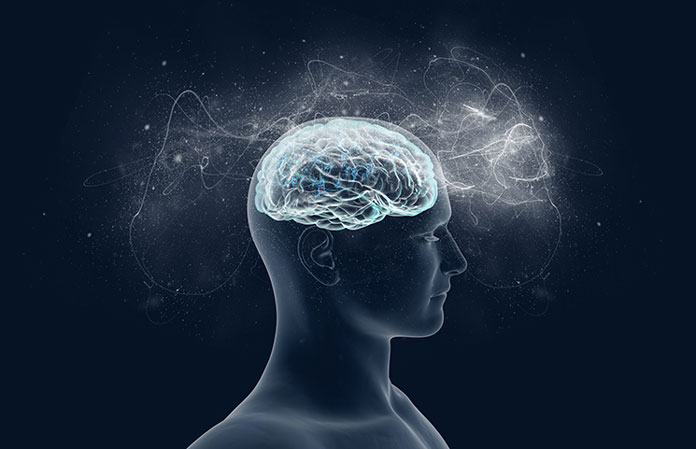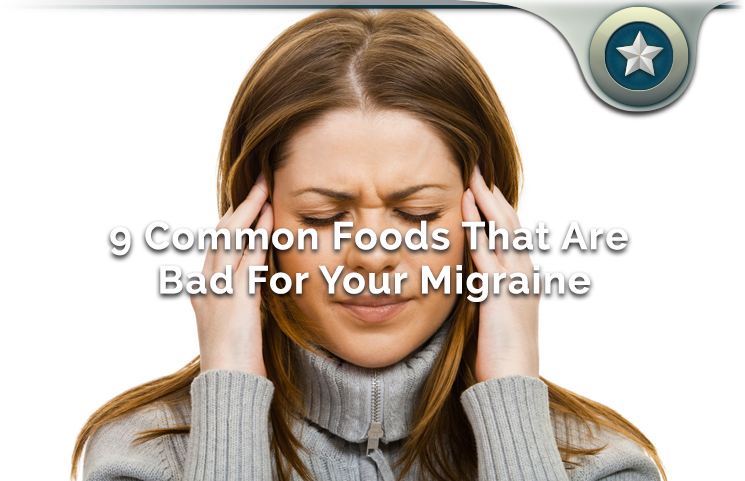A widely occurring health condition, migraines affect over 15% of all adults throughout the world. Varying in symptoms and severity from a slight pulsating feeling to a full-blown, debilitating headache, migraines are known to greatly reduce the quality of life for those who have them chronically.
While the primary cause of migraines is yet to be discovered, scientists have managed to figure out certain “factors” that may trigger a migraine attack. One such trigger factor is diet.
Consumption of certain foods may trigger migraines in certain people. As a matter of fact, over 10%–60% of those suffering from migraines have claimed that certain foods trigger their headaches. While these foods differ from person to person, some foods are commonly known to trigger migraines. In this article, we have listed the 9 most common foods that act as migraine triggers.
9 Common Foods That Are Bad For Migraines
1. Aged Cheeses
Cheeses, especially the aged ones, are often seen as a potential migraine trigger. According to researchers, this might be the case due to the fact that aged cheeses are rich in tyramine, a kind of amino acid that has a direct effect on the movement of blood vessels.
Other varieties of food that are rich in tyramine include cured, aged, pickled, dried, and smoked foods. These include tofu, sauerkraut, salami, cheddar cheese, and Swiss cheese. While the current scientific evidence on the effect of tyramine on migraines is mixed, over half of conducted studies that have been looking for a link between the two have found the potential of tyramine to trigger migraines in people who are susceptible to them.
While concrete scientific evidence to back this claim is yet to be put forward, it has been observed that over 5% of migraine sufferers show sensitivity to tyramine.
2. Chocolate
A very common migraine trigger, chocolates contain two substances – flavonoids and phenylethylamine, which are plant compounds that trigger migraines. Some studies have shown that chocolate can – and does – cause migraines in people who are susceptible to them.
For instance, a study that was conducted to study the effect of chocolate on migraine patients found that over half of the total number of participants experienced migraine attacks the day after they ate chocolate, but none experienced an attack after taking the placebo.

3. Processed And Cured Meats
Meats that have been cured or processed (for example, lunch meats and hot dogs) contain a special kind of preservative called nitrites. When people first began to report headaches after consuming nitrite-rich foods back in the 1970s, they were popularly called “hot dog headaches”.
Even today, processed and cured meats are identified as potential migraine triggers. While many scientists claim that nitrites cause intense headaches by causing blood vessels to suddenly expand, extensive research to back this claim and prove its relevancy to migraine sufferers is yet to be put forward.
4. Fried And Fatty Foods
Fried and fatty foods are already known for a variety of health problems, migraines being only one of them.
This is because such foods elevate fat levels in the blood, which in turn produces a chemical called prostaglandin. Prostaglandin causes the blood vessels to expand, which in turn can cause a migraine.
According to a study that was conducted to monitor the effects of fatty foods on migraines, participants who consumed over than 69 grams of fat daily reported experiencing twice the number of headaches compared to those who consumed less fat.
Furthermore, they reported that the intensity and frequency of their headaches reduced once they reduced their fat consumption. The study concluded with over 95% of all participants reporting a reduction in the frequency of headaches by over 40%.
Another study that was conducted to study the effect of a vegan diet with low fat content ended up with similar conclusions: a visible reduction in the frequency and intensity of headaches.
However, factors other than fat (like exclusion of animal products and weight loss) were also changed in both studies, which makes it difficult to determine whether fat intake influenced the changes on its own. That said, it is definitely clear that it has some bearing.
5. Certain Varieties Of Chinese Food
In order to enhance their flavor and taste, many Chinese as well as processed foods make use of Monosodium glutamate (MSG). MSG is a flavor enhancer that is widely in-controversy due to its adverse effects on general health and well-being.
While several people over the course of decades have reported experiencing headaches after consuming MSG-rich foods, no actual evidence of the effect has been unearthed to date, and no high-profile studies have as yet shown any link between consumption of MSG and migraines.
Additionally, the high salt and fat contents of these foods are also known to cause migraines. MSG still remains the main factor, though.
6. Tea, Coffee, And Sodas
While caffeine is widely used to induce freshness and treat headaches, studies have shown that caffeine and caffeinated beverages in particular can indirectly cause migraines.
A widely-known phenomenon in this regard is the infamous “caffeine withdrawal headache,” which many people experience once the effect of the caffeine wears off. This happens due to the sudden expansion of the blood vessels that had previously contracted in response to consumption of caffeine.
While caffeine withdrawal is more often the cause of standalone cases of non-migraine headaches, they can also trigger migraines in people who are prone to them.
7. Artificial Sweeteners
Artificial sweeteners, which are used as a substitute for sugar in many beverages and foods, are known to cause headaches in migraine sufferers. Specifically, Aspartame, is known to have this effect. While some people have reported experiencing headaches after taking aspartame, proper scientific evidence to back this claim is yet to be found.
Although some studies to investigate the effect of aspartame on migraine sufferers have been conducted, none of those could come up with any conclusive results due to their small size or flaws in their design. That said, the studies did manage to find out the link between the two.
For instance, one small study found out that over half of eleven participants who consumed large quantities of aspartame experienced a more intense migraine attack. It is therefore, assumable that aspartame can cause headaches in people who are susceptible to them.
8. Alcoholic Drinks
While the reason is not very clear, it is a well-known fact that alcoholic drinks trigger headaches and migraines. Those who are prone to getting migraines are far more likely to suffer from headaches during their hangover compared to those who don't.
Interestingly enough, it has been found that migraine sufferers in general refrain from drinking too much alcohol. That said, certain types of alcohol are more likely to cause migraines than others. Red wine, for instance, is often regarded as a potential migraine trigger.
In fact, a study that was conducted to find out which kind of alcohol was more likely to induce headaches concluded with the result that red wine, when compared to vodka, was far more likely to cause headaches. According to many researchers, this could be the case due to flavonoids, sulfites, and histamine, which are compounds present specifically in red wine.
According to statistics, over 10% of migraine sufferers get headaches triggered by alcoholic drinks. That said, while there is no need to avoid alcohol entirely, those who are prone to migraines should keep their alcohol consumption limited.

9. Cold Drinks And Cold Food
Almost everyone knows about the infamous “ice cream headaches” that are caused by consumption of cold beverages and foods. While these foods are known to cause standalone cases of massive headaches in many people, they can also trigger migraines in people who are prone to having them.
A study that was conducted to monitor headaches induced by cold foods asked two groups of participants -migraine sufferers and those who suffer from normal headaches – to keep a cube of ice between the roof of the mouth and the tongue for ninety seconds.
According to the results of the study, 74% of the migraine sufferers who took part in the test suffered from headaches, as opposed to only 32% of those in the group consisting of people who suffered from normal headaches.
Another study that was conducted on women showed that migraine sufferers were twice more likely to have a headache once they take ice-cold water as compared to those who didn't have migraines.
Needless to say, migraine sufferers are far more likely to develop headaches and are better off avoiding foods such as frozen foods, cold drinks, ice-cream, frozen yogurt, or slushies.
Migraine Headache Foods Final Words
As mentioned earlier, while diet itself is not the only cause for migraine attacks, certain foods have a profound effect on their severity and frequency – especially in people who experience them chronically. By avoiding such foods, therefore, you can avoid getting a migraine to a good extent.
If you suffer from migraines and want to find out which foods work as a trigger factor for you, you can try to identify them, and then create a food and symptom diary where you can record your responses to foods and observe whether any patterns emerge.
Staying away from the aforementioned foods and drinks will also help, since they are the most common migraine triggering foods. With the right kind of diet that is devoid of any migraine triggering foods, the severity and frequency of migraines can be reduce to a great extent.









